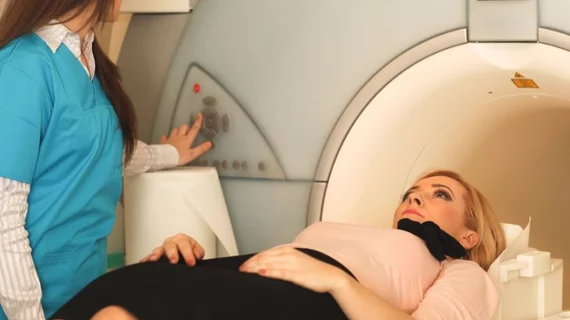Why would 41% of women with dense breasts avoid supplemental breast MRIs?
More than 40 percent of women with dense breasts will choose to forgo supplemental breast MRI after receiving a negative mammography screening, according to study recently published in Clinical Radiology.
Researchers found that reasons for non-participation were "MRI-related inconveniences," such as claustrophobia or refusing contrast agent, and anxiety about supplemental screenings, wrote corresponding author C.H. van Gils, PhD, from Utrecht University Medical Center in the Netherlands, and colleagues.
The study included 8,061 women between 50 and 75 years of age who were invited for supplemental MRI between December 2011 and November 2015. The supplemental screening was offered as a part of the Dense Tissue and Early Breast Neoplasm Screening (DENSE) trial after the women received a negative mammogram in the national population-based mammography screening program.
In total, 41 percent of invitees did not participate in the study. Those who did were, on average, 54 years old, compared to women with extremely dense breasts in the population-based screening program, who were 55 years old on average. Those with a higher socio-economic status were more likely to participate in supplemental screening.
In the future, researchers explained that informing patients with dense breasts regarding the harms and benefits prior to screening could reduce related anxiety.
"As 'anxiety regarding the result of supplemental screening' is an important reason for non-participation, offering both techniques on the same day, delivering one combined evaluation result, and providing clear and evidence-based information of benefits and harms, might further reduce barriers to participation," the researchers wrote.

